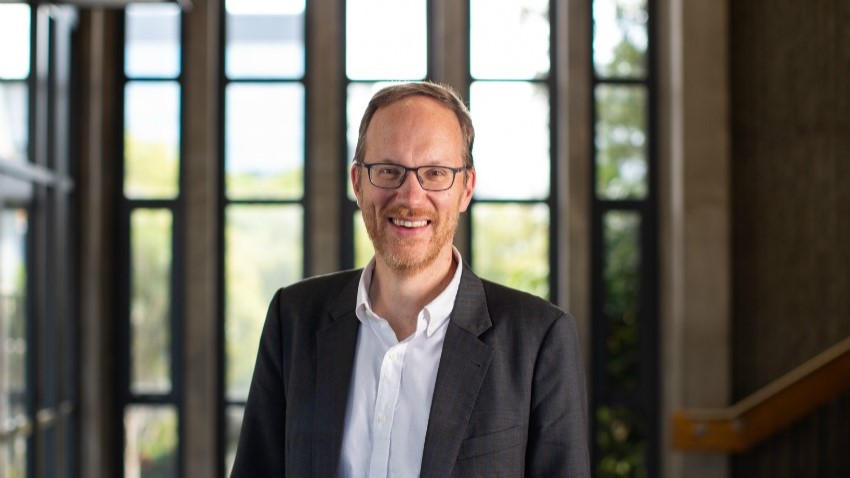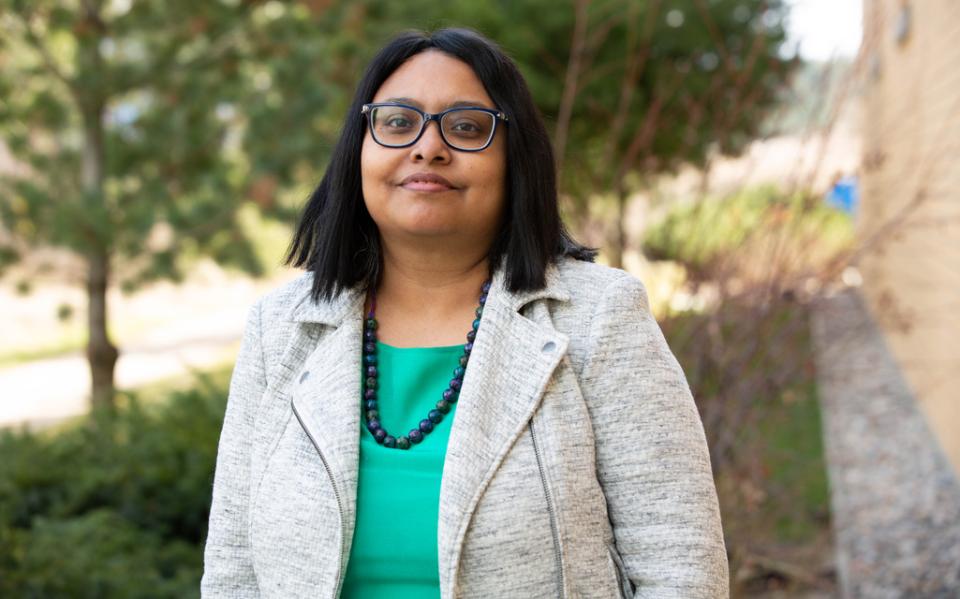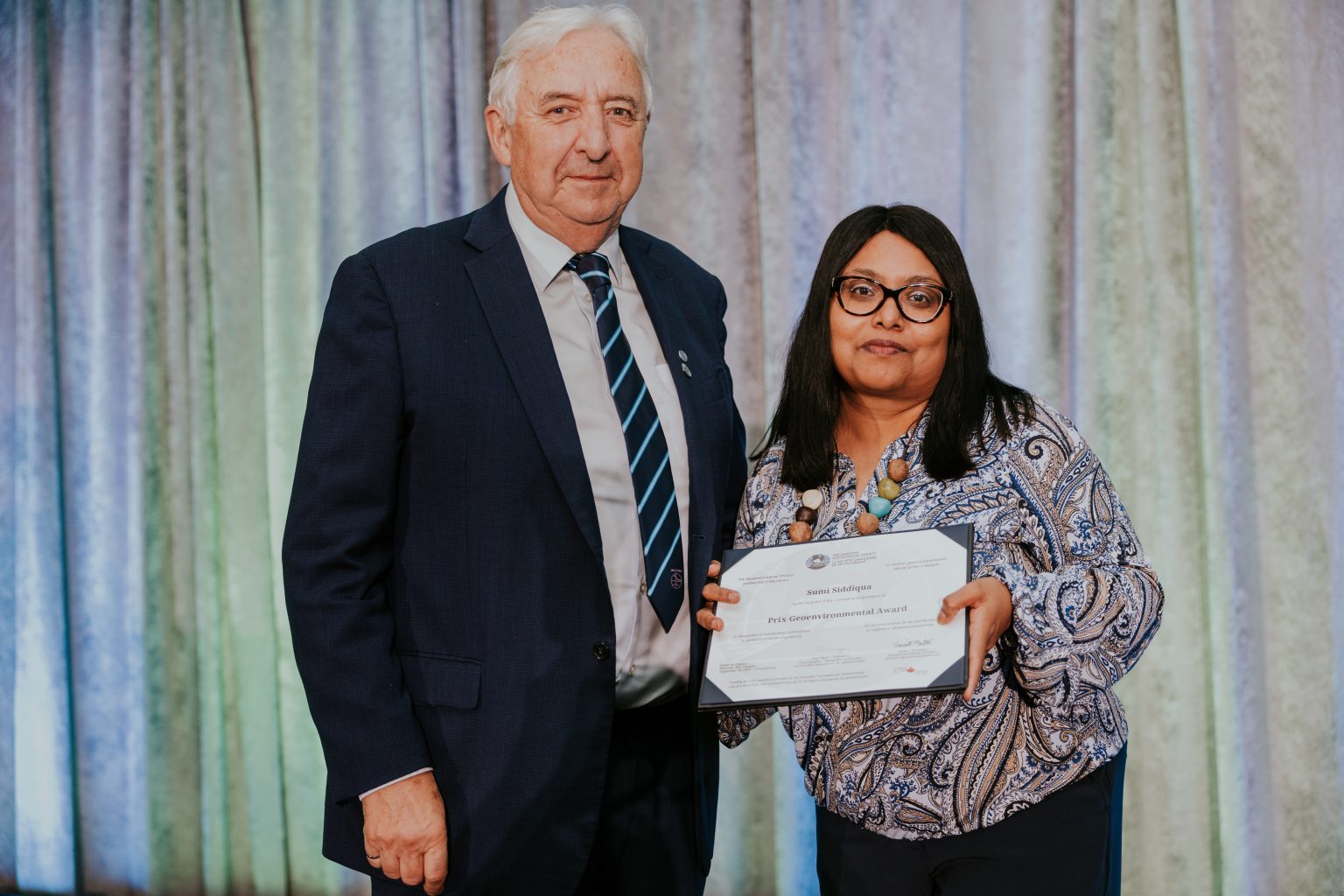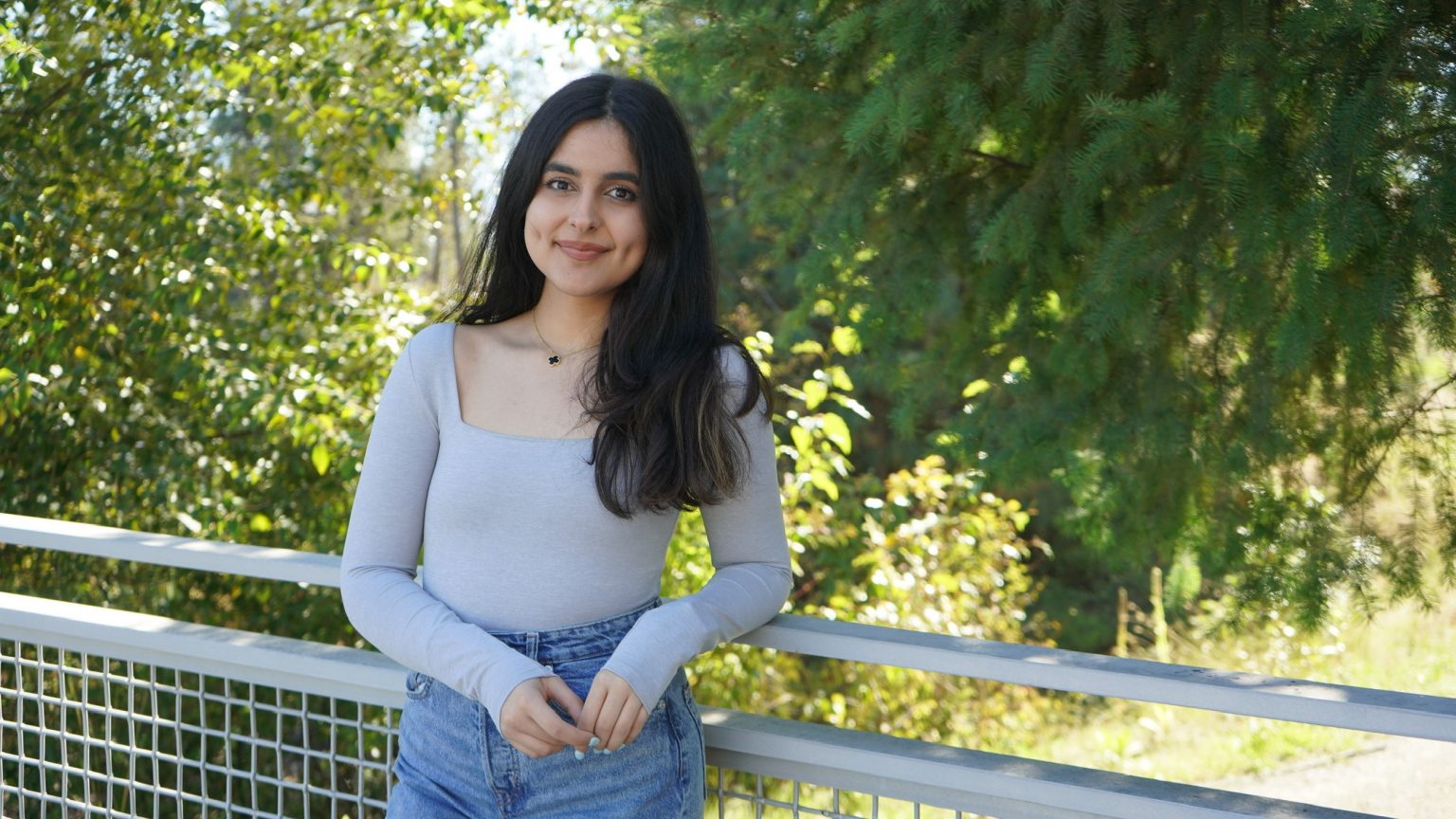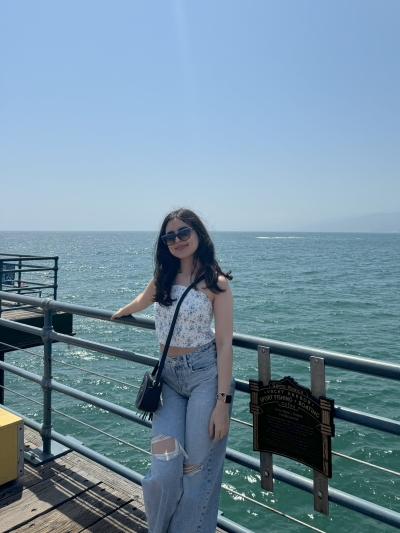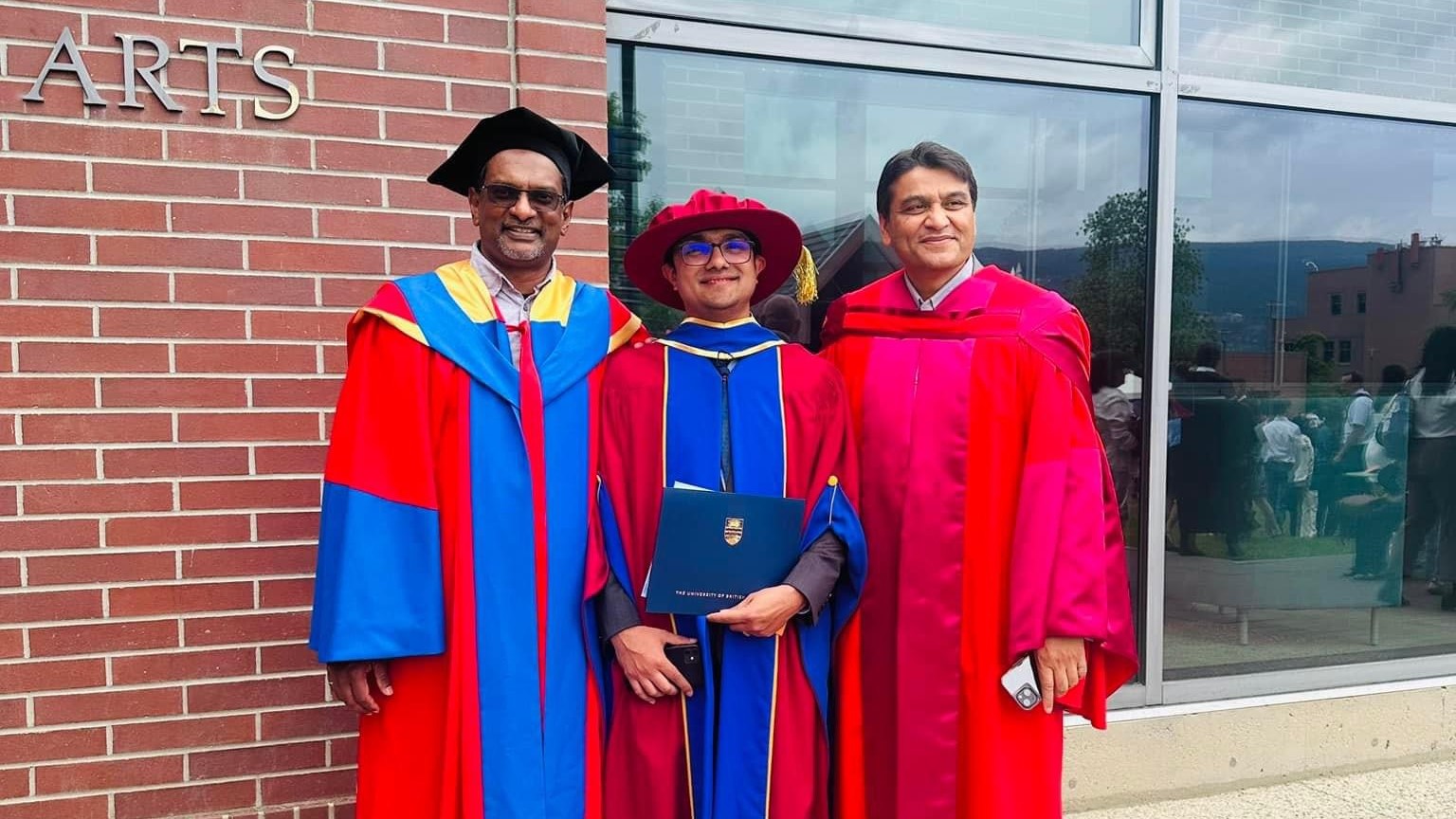
Sarin Pokhrel (centre) with Kasun Hewage (left) and Rehan Sadiq (right) at Convocation.
Meet Dr. Sarin Raj Pokhrel, UBC Okanagan School of Engineering alumnus (Master of Applied Science (MASc, 2019), Doctor of Philosophy (PhD, 2023), Civil Engineering.
Sarin currently works for the Government of Alberta with the Environment and Protected Areas as a Transboundary Water Quantity Specialist – Engineer 2. Read more about his UBC Engineering alumni journey and advice for current and incoming students below!
Tell us a bit about yourself
I am Sarin Pokhrel. I have over seven years of experience working in the water resource engineering sector, wearing different hats as a researcher, consultant, and now a responsible government employee. I enjoy exploring new hiking trails and taking long walks with my wife by the lake or river, always seeking places close to nature.
What drew you to UBC Okanagan and the School of Engineering?
My journey to UBC Okanagan (UBCO) began long before I even knew it would lead me there. It all started with my uncle, a municipal engineer, who would often share stories about his work and his experiences in graduate school in Canada. When I was in Grade 4, he handed me a $20 bill (which I still have) and said, “Take this with you when you come to Canada.” That moment planted the seed of a 9-year-old Nepali boy to fulfill his Canadian dream.

Family encouragement helped inspire Sarin’s childhood dream.
As I grew older, I developed a deep interest in engineering, and when it came time to look at graduate schools, UBC was at the top of my list. Not only is UBC consistently ranked among the top 50 universities worldwide, but its School of Engineering is also among the top 3 in Canada. The combination of its global reputation, the beautiful Okanagan setting, and the chance to study under world-renowned faculty made UBC my first choice.
In 2017, I began my master’s program and was fortunate to work under the supervision of Dr. Rehan Sadiq. I also earned my PhD in 2023 under his guidance. Even today, I receive constant suggestions and feedback from him to enhance my professional growth.
Beyond his research excellence, Dr. Sadiq is a remarkable mentor and kind human being. I still remember him telling me, “The sky is the limit.” His words continue to inspire me to push boundaries and contribute meaningfully to the community. Overall, Dr. Sadiq and School of Engineering have played a significant role in shaping who I am today.
What are some of your fondest memories of / most rewarding experiences from your time at UBCO?
One of my earliest memories was the routine that became a big part of my life: catching the 6:30 am bus to campus and returning home on the 10:19 pm bus. My friends joked that I practically lived on campus—and it felt like I did.
What made the experience truly unforgettable was the people.
I was lucky to be part of an incredible research group and the support, camaraderie, and laughter we shared made even the toughest days enjoyable.
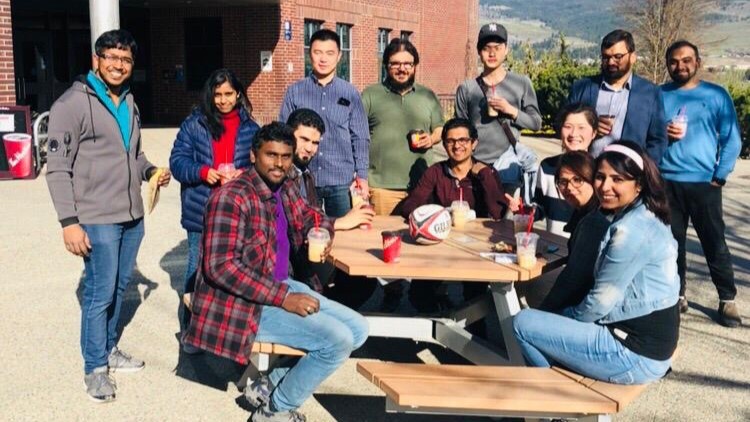
Sarin Pokhrel and friends on campus.
Outside of my research, I also built lasting relationships with people across the university—the School of Engineering (SOE) staff, staff at the Disability Resource Centre where I worked as an invigilator, and the amazing team at the Provost office, where I worked as a Learning Designer.
Leading the Nepalese Scholars’ Association was another highlight. Organizing cultural events on campus and connecting with the Nepalese community across the Okanagan helped me stay rooted in my heritage.
UBCO felt like a family to me. It wasn’t just the work—it was the genuine kindness and care from so many in the community.
When my wife first arrived in Canada in 2022, I still remember how members from the UBCO family, including Shannon Hohl, Cindy Bourne, and colleagues helped me set up our new apartment. Moments like that made me feel not just like a student, but part of something much bigger—a community that truly looked out for each other.
I can’t forget to mention Tracy and her family, who became my “Canadian family” during my five years living with them before my wedding. They embraced me as their own, calling me their “Nepalese son,” which made my time in the Okanagan feel even more like home. Their warmth and kindness made my UBCO journey not only smoother but also more memorable and fun.
How did your time at UBC prepare you for your future?
My time at UBC prepared me for the future in so many ways, and I can break it down into four key areas.
First, collaboration. During my PhD research, I had the chance to work with over nine municipalities across the Okanagan Valley, involving engineers, managers, and operators to assess and benchmark their water systems performance. This experience taught me how to build strong relationships with people outside of my immediate research group, and more importantly, how to communicate effectively with diverse audiences. Leading stakeholder workshops pushed me to articulate complex ideas in a way that everyone could understand.
Second, leadership. As a Learning Designer, one of my primary roles was to help build a TA credential program, organize workshops, assist faculty in creating more engaging syllabi, and suggest student-centered assessment methods. I also took part in cross-campus initiatives like the Academic Integrity Working Group. These roles helped me develop my leadership skills by taking on challenges that were both new and impactful.
Third, mentoring. Being a TA was one of my favorite parts of the UBC experience. I loved helping students with their coursework, from first-year undergraduates to graduate students. I was fortunate to serve as a lead TA for many courses, and working closely with faculty gave me insights into the academic process while allowing me to support students on their learning journeys. This has helped me to guide new aspiring engineers and prospective graduate students.
Lastly, patience. This might be the most important lesson I learned. For example, I remember the disappointment of having my first two journal articles rejected on the same day during my master’s program. It was a tough moment, but I kept pushing forward, and through perseverance, I eventually published eight papers during my six years at UBC (Note: I am using this just an example but not a metric to evaluate one’s graduate academic journey). This experience taught me the value of hard work and resilience, which continues to help me tackle challenges in my career today.
What are you up to today? What is your current role? Tell us a little about your career path and how you got to where you are today.
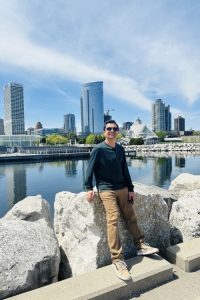
I am working at the Government of Alberta with the Environment and Protected Areas as a Transboundary Water Quantity Specialist – Engineer 2. My work involves a blend of technical expertise, engineering judgement, and stakeholder collaboration. I am involved in developing a range of models, from simple statistical ones to advanced machine learning and hydrological models. These models evaluate, predict, and compare natural water flows within transboundary basins, involving collaboration across different departments within my branch.
The transboundary nature of this work means I get to build relationships and communicate engineering results to both technical and non-technical audiences across the province and the US, which is a part of the role I really enjoy. I also manage projects by updating trackers to maintain scope, ensuring timely completion of tasks, and preparing technical memorandums to document progress and findings.
A particularly rewarding aspect of my job is the direct impact my work has on people. For example, I am currently working on a predictive model that forecasts water availability in a river basin for a small town, which will help authorities plan necessary interventions in case of low flows. This kind of work has lasting implications for the community, ensuring a reliable water supply to support essential services and irrigation practices.
My career path has not been a straight line—like most of us, I have had to navigate twists and turns. But staying focused, building strong connections, and maintaining the right attitude has been key to my progress.
I have learned to identify what works and what does not. When something does not align with my passion and when I am not contributing much, I do not hesitate to explore new opportunities, and every time I have made a change, the new experience has been more rewarding than the last. Having clarity and surrounding myself with the right people has been crucial in shaping my journey to where I am today.
What are your goals?
My goals have taken on a deeper meaning, especially after the untimely loss of my mother at just 53. She worked tirelessly for our family, always wanting me to excel in my career while emphasizing the importance of being a good human being. Her unwavering support drives me to strive for continuous improvement even despite her physical absence—my biggest goal is to be a better version of myself today than I was yesterday and make my family happy and proud.
As an engineer, I want to contribute more towards community-driven and people-focused decisions that provide equitable and affordable services to the global community. It is crucial to communicate the real issues surrounding water resources, especially the misconception that Canada has unlimited water, which is still prevalent among a lot of Canadians. I believe this perspective needs to change more importantly now than ever as we have been experiencing issues related to floods, drought, wildfire consistently in the last few years. I am committed to being part of that broader conversation, advocating for sustainable practices, and raising awareness about the critical importance of water resources.
How has Engineering changed your view on the world?
As a water resource engineer, my perspective on the world has evolved significantly. I have come to understand the interconnectedness of natural systems and human activities, realizing how water resources impact public health, economic development, and social equity. This awareness has heightened my appreciation for sustainability, emphasizing the need for responsible water management for current and future generations.
My role has also underscored the importance of community engagement, teaching me that effective solutions must consider the needs of those affected – which are people. Additionally, facing challenges like climate change has fostered a mindset of innovation and adaptation. Overall, my engineering experience has transformed my view of the world, motivating me to advocate for sustainable practices and equitable solutions that benefit both people and the planet and making me more responsible citizen.
What advice do you have for future / current engineering students?
My advice to future and current engineering students centers around four key principles that I’ve learned through my own journey.
First, maintain a positive attitude. Engineering is a challenging profession, and there will be struggles along the way. However, a positive mindset can make all the difference. With consistent effort, no goal is unachievable—it’s only a matter of time before you reach the summit. Staying positive keeps you resilient in the face of difficulties.
Second, networking is vital. Building strong relationships is key to success. I encourage students to volunteer, join professional organizations, and actively connect with people in the field. Not only will this help you gain valuable insights and learn from others’ real-world experiences, but it also opens doors to new opportunities. Engineering is a long journey, and the connections you make will support you through the challenges and collaborations that lie ahead.
Third, hone your technical skills. The engineering world is rapidly evolving, so it is important to stay updated with the latest tools and techniques. Build a strong foundation in your area (i.e., clear theoretical concepts), and learn software and programming languages to support your area of engineering. Employers are looking for these skills, and having a solid technical base will make you stand out.
Finally, pursue what excites you. Don’t underestimate your worth or stick with something that doesn’t fulfill you. If you find that you are not enjoying your work (and trust me I have been in this situation)—whether it is a research project or a job—don’t be afraid to move on. You should feel motivated and proud of what you do because it takes up a significant part of your day. There are always opportunities for people who have hunger to learn and improve. Remember, this time, you are not starting over; you are moving forward with all the experience you have gained. Embrace new opportunities, and always seek out work that inspires and excites you.
Anything else you’d like to share about your Alumni story?
As a UBC Okanagan alumnus, I am deeply grateful for the experiences and relationships that shaped my journey.
UBCO was more than an academic institution—it was a community that connected me with mentors, peers, and lifelong friends.
From collaborating on research to leadership roles, my time there prepared me for a fulfilling career in engineering.
In the later stages of my PhD, my wife became my biggest source of strength. She stood by all my decisions, offered guidance whenever needed, and continually motivated me to push forward. Despite her own career ambitions, she made sacrifices when we moved to the U.S. for my first job after completing my PhD. A big shoutout to her, the unsung hero in my journey!
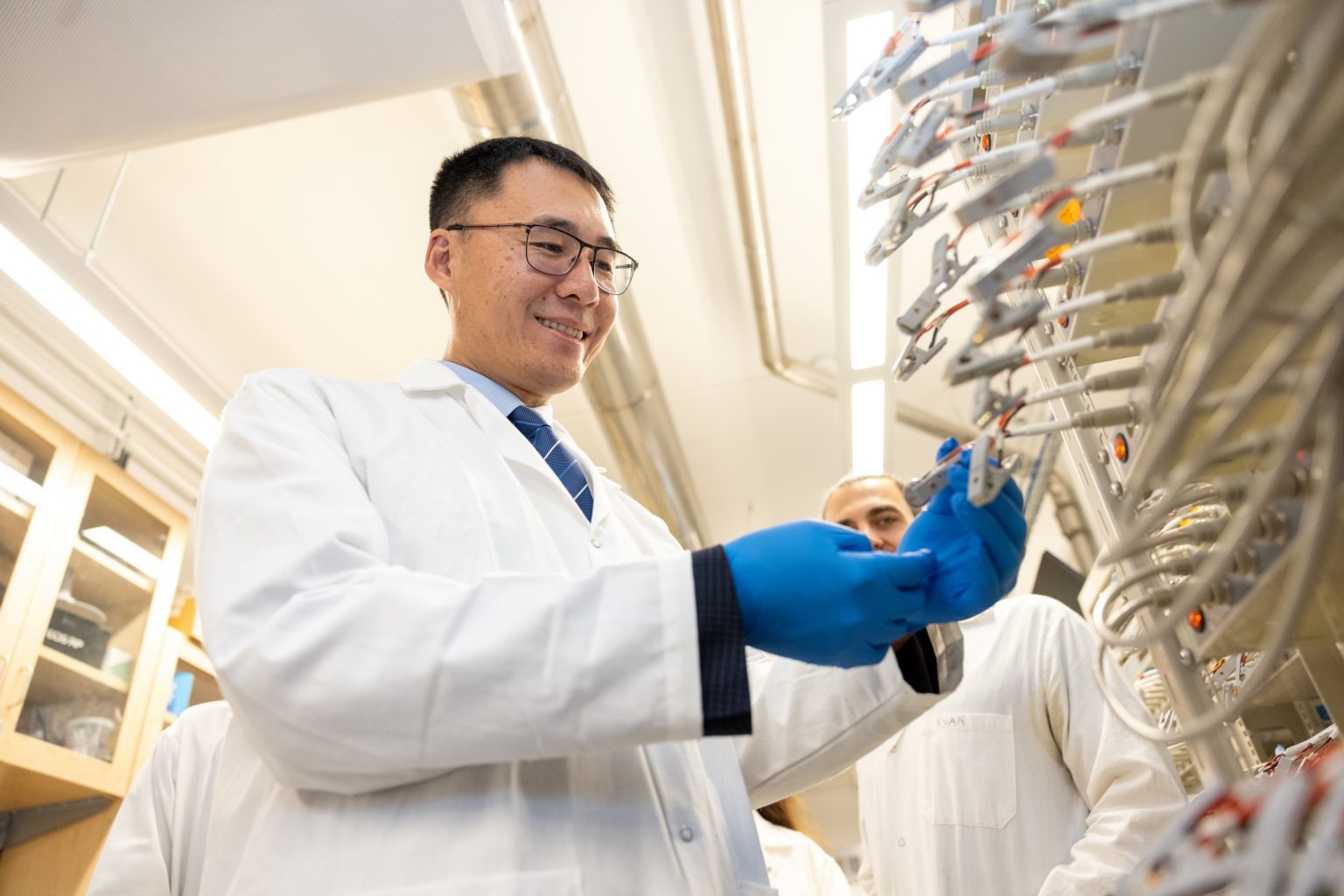
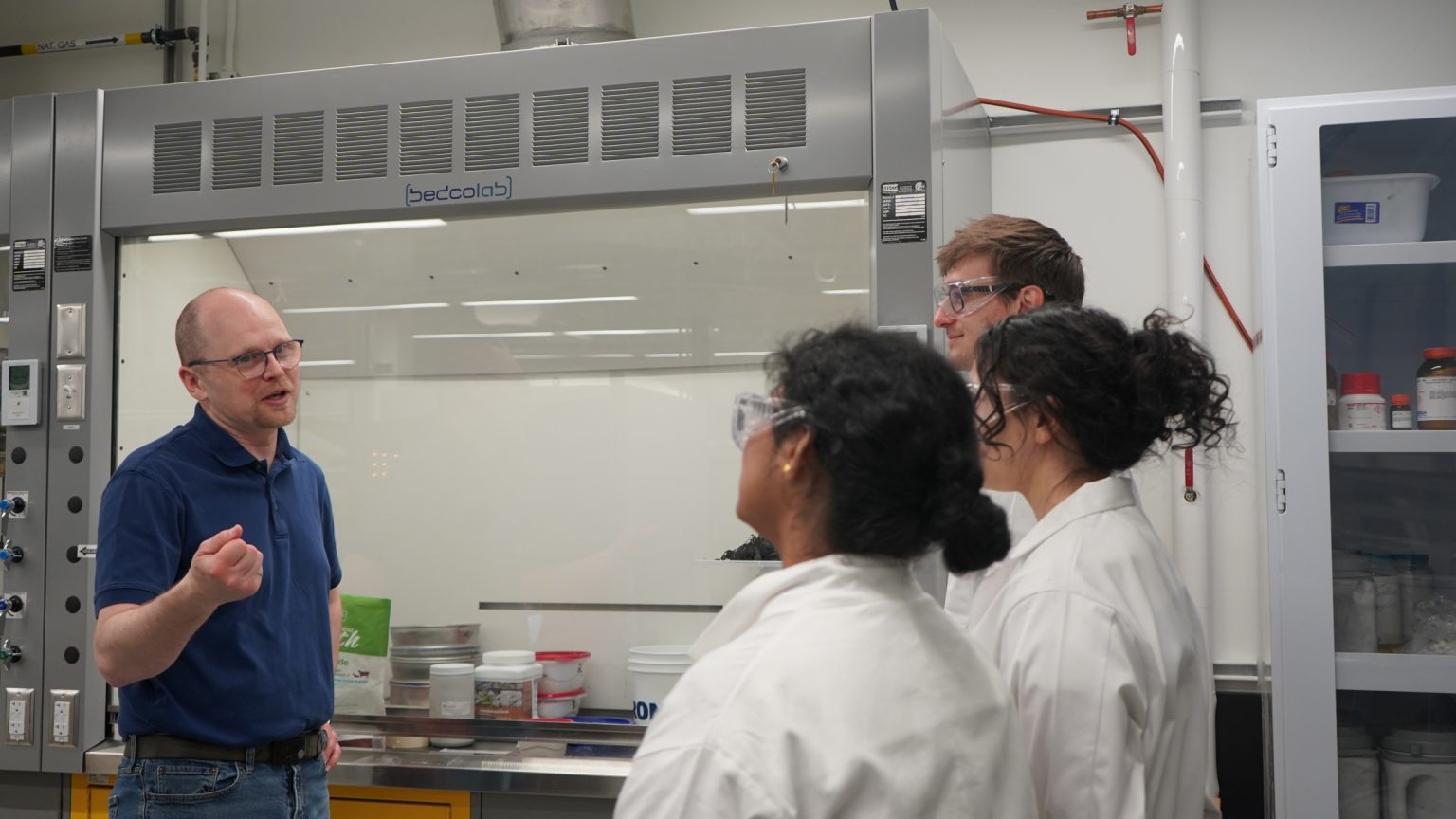
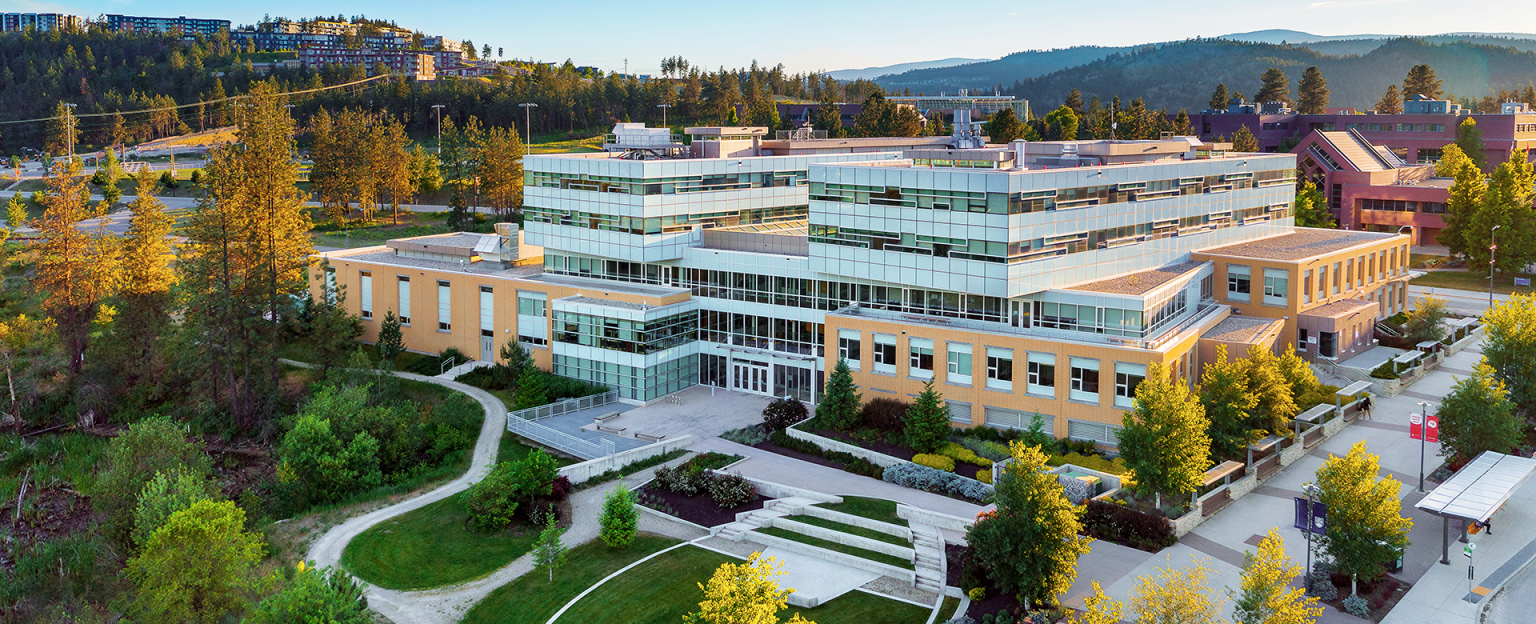
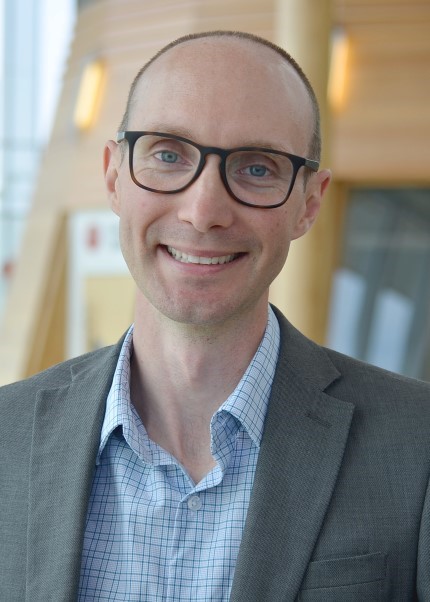
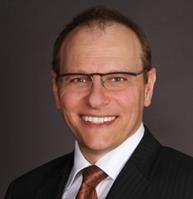
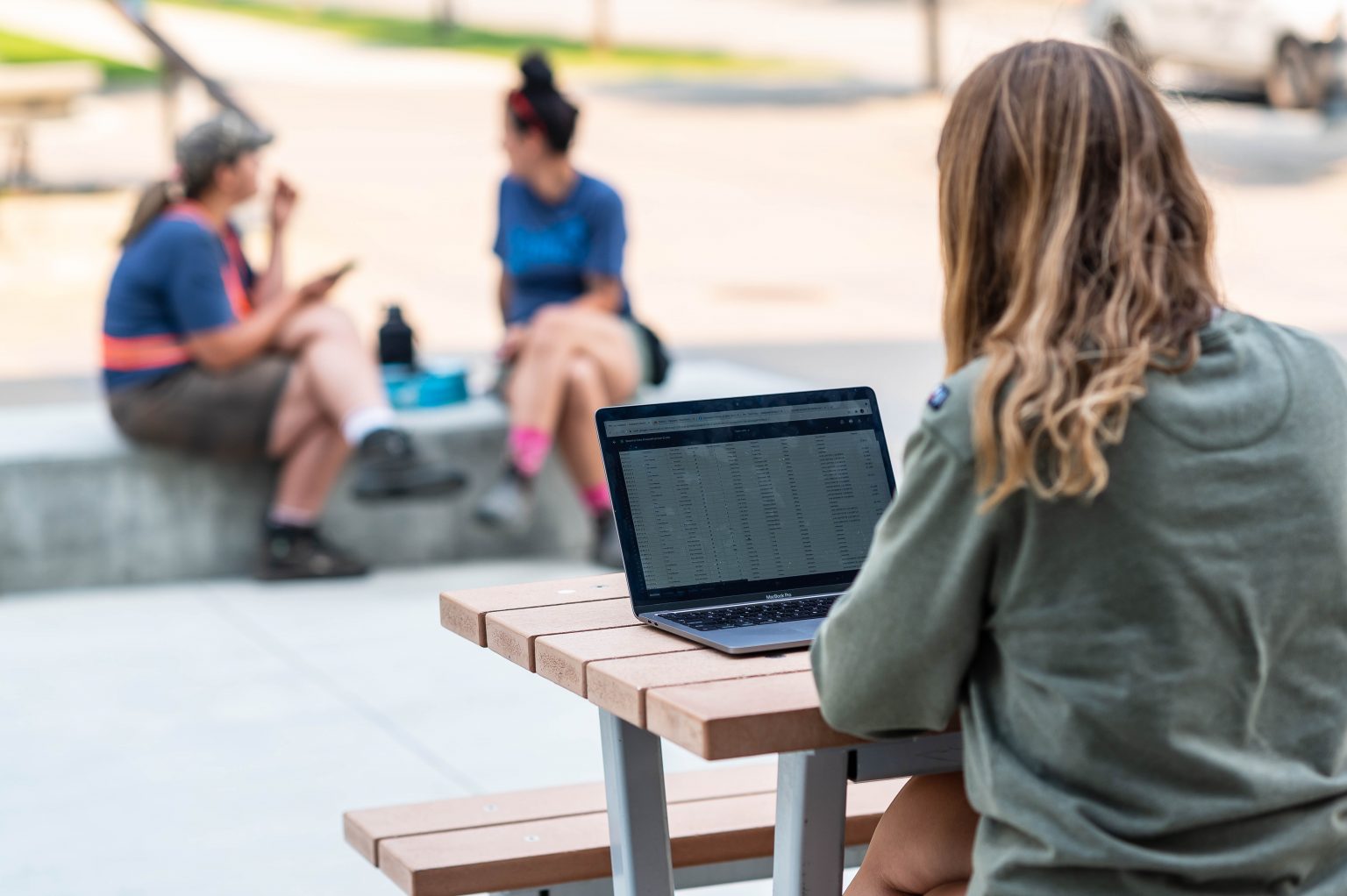
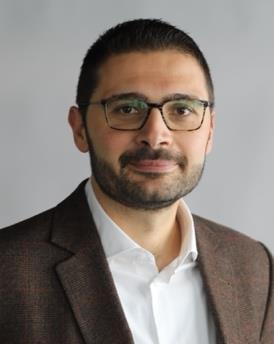 Rethinking the Seismic Design of Steel Moment Resisting Frames
Rethinking the Seismic Design of Steel Moment Resisting Frames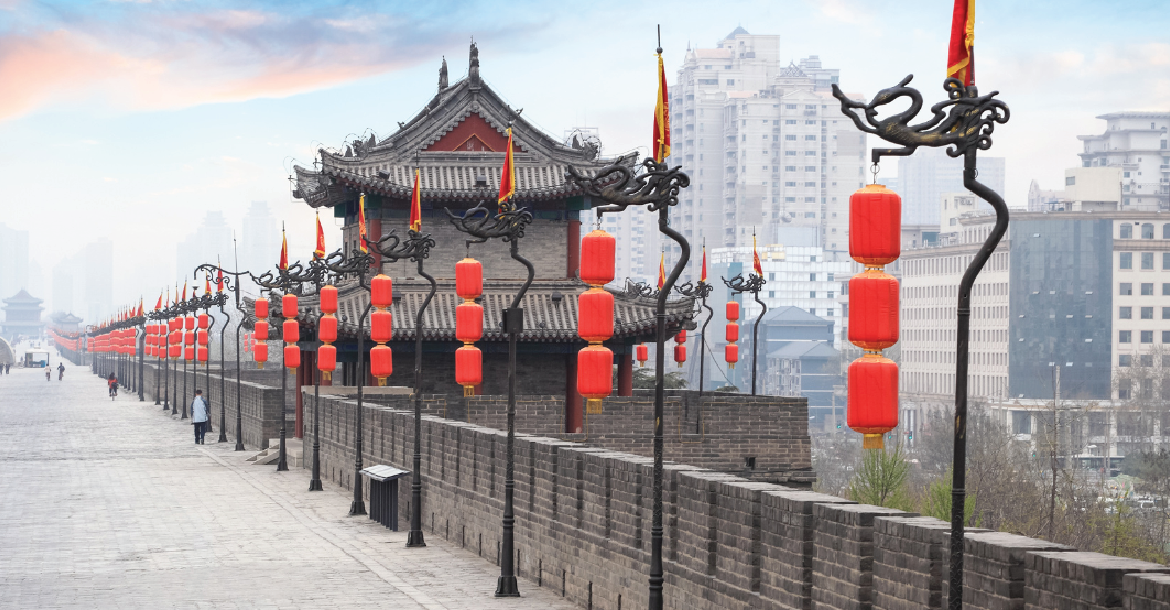
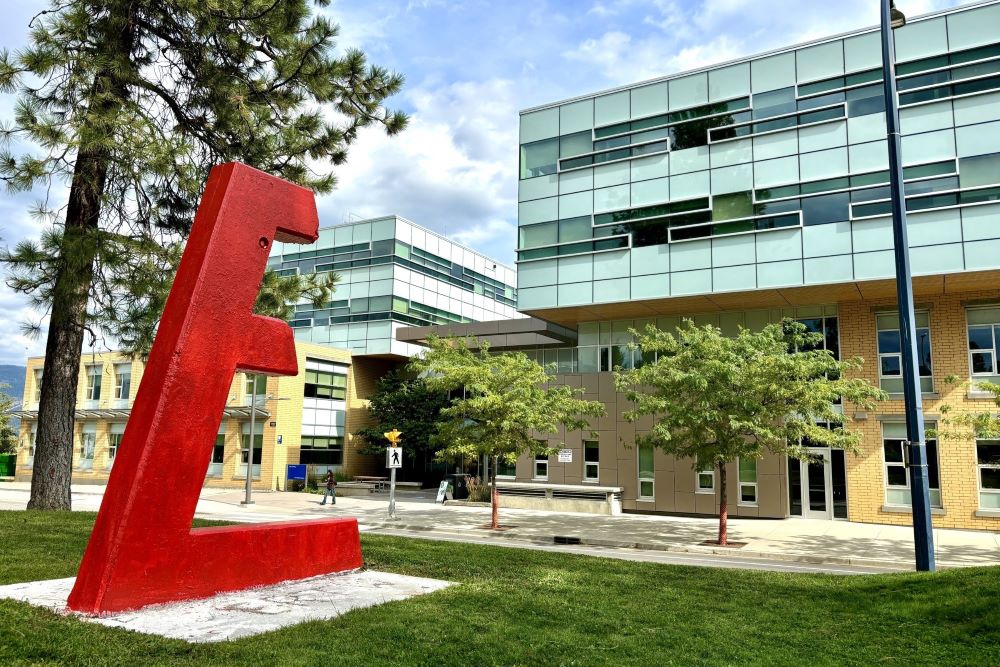 Engineering students at UBC Okanagan will gather on Sunday, Oct. 20 to put their creativity, teamwork and problem-solving skills to the test at the 2024 Okanagan Engineering Competition.
Engineering students at UBC Okanagan will gather on Sunday, Oct. 20 to put their creativity, teamwork and problem-solving skills to the test at the 2024 Okanagan Engineering Competition.